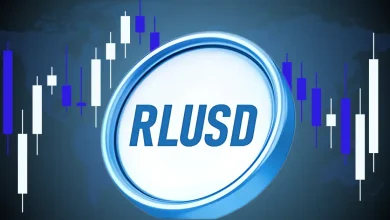
Ripple and the SEC jointly move to settle, proposing a $125M fund split—$50M to SEC, $75M to Ripple—to avoid further appeals.
Legal experts criticize the filing for lacking strong arguments, but Judge Torres is still expected to approve the motion.
After over four years of legal battle, the Ripple vs SEC case could finally be over. Both parties have recently filed a joint motion to settle. Ripple aims to unlock $125 million from escrow, $50 million would go to the SEC as a civil penalty, and $75 million would return to Ripple. The goal is to wrap it up without more delays or appeals.
Deaton Says SEC Should Have Owned Up
Attorney John Deaton says there is a 70% chance that Judge Analisa Torres will approve the deal. Deaton responded to a comment that accused him and Fred Rispoli of saying Ripple and the SEC should have overly praised Judge Torres in their filing.
He clarified that he was not expecting any flattery, nor was he strongly criticizing the lawyers involved. Instead, he expected the SEC to acknowledge its past aggressive approach toward crypto, especially given past court rulings calling its actions “arbitrary and capricious” and even sanctioning SEC lawyers in the Debt Box case.
In Ripple’s case, Judge Netburn said the SEC “lacked faithful allegiance to the law.” Deaton expected the filing to mention these issues and highlight upcoming crypto laws like the Clarity Act and Genius Act as reasons to settle and move forward.
Filing Missed Key Points
He also expected Ripple to point out how unfair it would be to face an injunction while the rest of the crypto industry moves toward clarity. He noted that companies like Circle would have an edge, as banks prefer working with firms that are not under a legal cloud.
He said that the filing needed a stronger case to convince the judge to reverse a ruling she firmly believes in, and not just a few cases to justify it. He plans to provide an objective breakdown of both sides in his next update.
Legal Experts Voice Mixed Views
Attorney Fred Rispoli questioned why the injunction still matters if the SEC can simply grant Ripple a waiver to bypass it. Former SEC official Marc Fagel also raised concerns over the SEC’s latest filing, saying that its focus on elections and policy shifts is not a strong legal argument.
Judge to Grant Motion Anyway?
Bill Morgan commented on the Ripple-SEC joint motion, noting that it doesn’t become more convincing the more you read it. But he thinks that the judge will likely approve the motion anyway.
Never Miss a Beat in the Crypto World!
Stay ahead with breaking news, expert analysis, and real-time updates on the latest trends in Bitcoin, altcoins, DeFi, NFTs, and more.
FAQs
After over four years, the Ripple vs. SEC lawsuit could be ending as both parties filed a joint motion to settle, aiming to release $125 million from escrow.
Attorney John Deaton estimates a 70% chance that Judge Analisa Torres will approve the proposed settlement, despite some legal experts finding the joint motion’s arguments less convincing.
Legal experts have mixed views, questioning the relevance of an injunction if the SEC can grant waivers and criticizing the SEC’s arguments focused on elections and policy shifts.
Trust with CoinPedia:
CoinPedia has been delivering accurate and timely cryptocurrency and blockchain updates since 2017. All content is created by our expert panel of analysts and journalists, following strict Editorial Guidelines based on E-E-A-T (Experience, Expertise, Authoritativeness, Trustworthiness). Every article is fact-checked against reputable sources to ensure accuracy, transparency, and reliability. Our review policy guarantees unbiased evaluations when recommending exchanges, platforms, or tools. We strive to provide timely updates about everything crypto & blockchain, right from startups to industry majors.
Investment Disclaimer:
All opinions and insights shared represent the author's own views on current market conditions. Please do your own research before making investment decisions. Neither the writer nor the publication assumes responsibility for your financial choices.
Sponsored and Advertisements:
Sponsored content and affiliate links may appear on our site. Advertisements are marked clearly, and our editorial content remains entirely independent from our ad partners.








